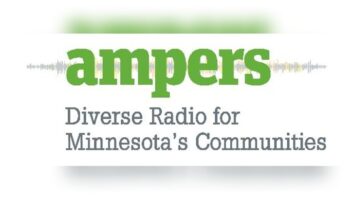The author is membership program director of the National Federation of Community Broadcasters. NFCB commentaries are featured regularly at www.radioworld.com.
The passing just days ago of one of African-American radio’s greats, coupled with the recent national debate about inclusion, should get community radio thinking more deeply about black community media and particularly about its own diversity priorities.
When many people saw the news of Jim Rouse’s death, it was greeted with tremendous sadness. Rouse was an innovator who saw the birth of several African-American media groups. As the founder of gospel station WOOW, the Minority Voice newspaper and community station WTOW, he played an essential position for new journalists and media people to get their start. More importantly, Rouse created very special voices for the respective audiences. They exemplified what truly outstanding black media can be.
African-American public media and community radio have an important and fascinating history. The United States’ many brilliant Historically Black Colleges and Universities, or HBCUs, have played a leading role in sharing the bounty of African-American culture, arts, music, journalism and ideas. Like the schools themselves, these community radio institutions gave opportunities for students of African descent what just was not otherwise available. Radio stations like WEAA of Morgan State University and North Carolina Central University’s WNCU are among many that have won awards and national recognition for their crucial work locally and for the inspiration that they offer to outlets across the country.

African-American university and community/public radio has taken flight in many unique ways, including Sirius/XM and allied associations. Like all noncommercial radio, they’re looking at their futures. Furthermore, community and public radio of a non-African-American background is seeking to better resonate with black audiences.
As the National Federation of Community Broadcasters’ CEO Sally Kane and I have said before, this is the hour for community radio stations to deeply appraise their efforts at being inclusive. Lower than expected numbers related to NPR diversity and newsroom diversity have created plenty of discussion. Stations would do well to launch a local review, too.
Post-Charlottesville, the reasons to be more inclusive can only be amplified. Most notably, I believe more community radio stations must review these matters in the lens of African-American leadership development internally.
To be precise, “leadership development” means exactly what it sounds like, and is not addressed by adding one, two or 10 community radio programs. Research indicates, in fact, that communities of color don’t want to be sectioned off into special programming, but want the station to speak to issues relevant to their neighborhoods. By leadership development, I mean how your station is cultivating the next round of leaders to take community radio forward.
Current’s April Simpson just did a fantastic profile of public media’s emerging black leaders. Can your community radio station assess its own talent? If not, why?
In the technology industry, it is astonishing how quickly major players have responded to concerns about equity. Whether it is Salesforce or a much smaller businesses, perceptions of potential issues have been met swiftly and systematically. Although your community radio station may not be able to move as quickly, such instances may embolden you. If a 20,000-employee group can come up with a clear action plan, surely your 400 or less team can do it better.
Oftentimes I recognize the challenges are about resources and ideas. Maybe your station can look to the work of organizations like KDNK’s youth engagement endeavors or the fabulous Doug Mitchell’s Next Generation Radio for models of creating opening for mentoring and career growth for young people seeking to find roles in community radio. Very few media organizations have perfectly created growth tracks for youth of color, so there is no need to be intimidated if you have a lot of work to do. Admitting improving diversity in management and governance is the first step in an intensely challenging and rewarding journey.
I sincerely believe community media has an important place in the lives of people of color. Whereas so much of commercial television and radio has made questionable programming choices in service to the African-American community, public and community radio and television have presented thought-provoking and valuable history as well as programming that appreciates the life experiences of its audience. This acknowledgment means, however, that we can do better, both in terms of community engagement and for positioning community radio to be more representative of the people in our cities and towns.











